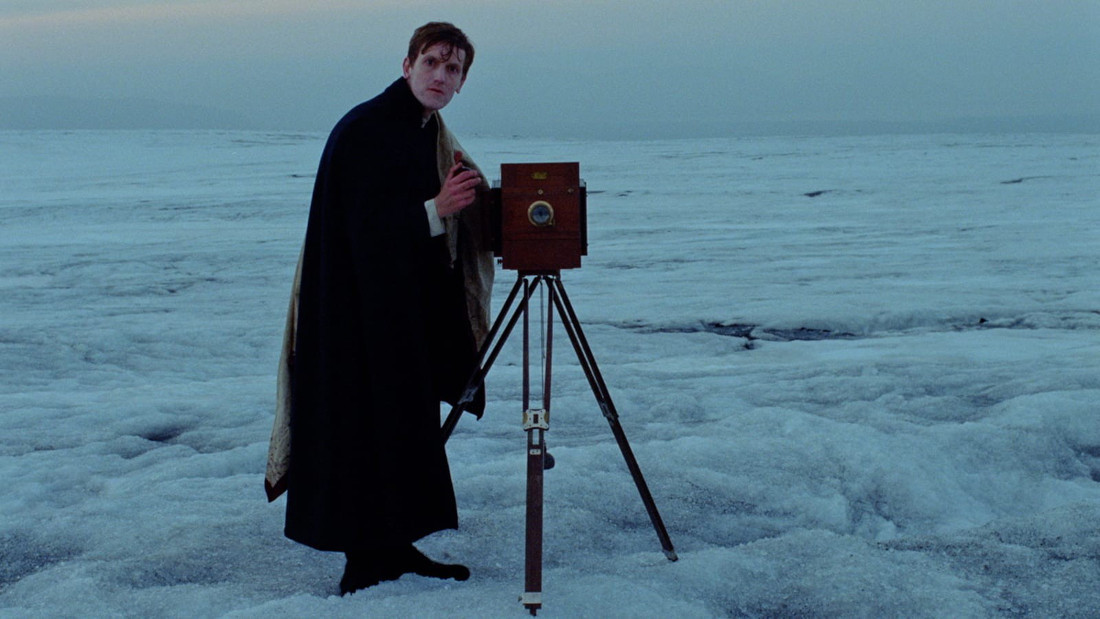Godland
★★★★ out of 5
Plays at Cinematheque from Feb. 10 to 16
Out of the 2022 Cannes Film Festival comes a bit of good old-fashioned late 19th century colonial fun, proving not all of Denmark is rotten. Godland is an international co-production helmed by Icelandic director and screenwriter Hlynur Pálmason, set in Denmark, Iceland, and the space in between.
Godland follows the odyssey of mawkish Lutheran priest Lucas (Elliott Crosset Hove) as he’s tasked with building a church in the then-remote Danish territory of Iceland. He is accompanied and assisted on the journey by a small crew, led by experienced Icelander Ragnar (Ingvar Eggert Sigurðsson), who is a cantankerous tour guide.
Don’t be fooled by the film’s evidently ironic title. The absence of God is the most prevalent theme. As the characters are beset by illness, death and despair, Lucas’ tenuous faith is put to the test.
It’s inevitably bleak, but Pálmason wisely injects the picture with disarming moments of humour and humanity. Visually, the film evokes the now-prevalent mode of folk horror popularized by independent film distributor A24 with films such as The Witch and Midsommar. Minimal colour saturation and a plainness in framing give the picture an eerie naturalism. The horrors of strange ritual sacrifice are supplanted by the equally terrifying prospect of living as an indentured servant of the Lord.
This is some of the breeziest 145 minutes of foreign filmmaking I’ve seen in a long time, especially because the film’s brief snapshots goad viewers into inhabiting its world. A single green sprout on a barren beach, a baby lying in the shadow of a mountain range, even a shot of a worm in a pile of festering horse feces lends grotesque credibility to the plight of the colonizers.
Did I mention that a boxy, viewfinder-like aspect ratio is maintained throughout, mimicking the various photographs Lucas snaps on his mission? A novelty reducing the amount of picture seen has the potential to wear thin, but it gives the movie an almost quaint archival quality, even if film likely wasn’t invented yet.
While the first half of the picture focuses on the journey, the latter half explores life among the settlers and Lucas’ growing disquietude with his role as spiritual leader. He falls for Anna (Vic Carmen Sonne), daughter of village leader Carl (Jacob Lohmann), much to Carl’s and probably God’s displeasure. If they seem to lack chemistry, remember that their love is more a product of circumstance than fate. Also, the film requires third-act conflict.
Reward for patience is promised to the settlers but ultimately never delivered. Conversely, Godland is worth the wait. The film has a relatively sparse script, and audiences must follow the old adage and read between the lines. In Godland, implication reigns supreme.
The innocuous becomes the uncanny through Pálmason’s tranquil direction, and what’s left unsaid is the source of much tension. Whether the movie is a parable on the perils of colonialism or miscommunication, Godland simply is, and that’s perhaps its most endearing quality.
Lucas’ evangelization ends unceremoniously when he has simply had enough. His odyssey ends, but the circle of life is unabated by such a minor disturbance. As shown by the closing shots of Iceland’s picturesque landscapes and the changing of seasons, life goes on. As if there is any other choice.
Published in Volume 77, Number 18 of The Uniter (February 9, 2023)








